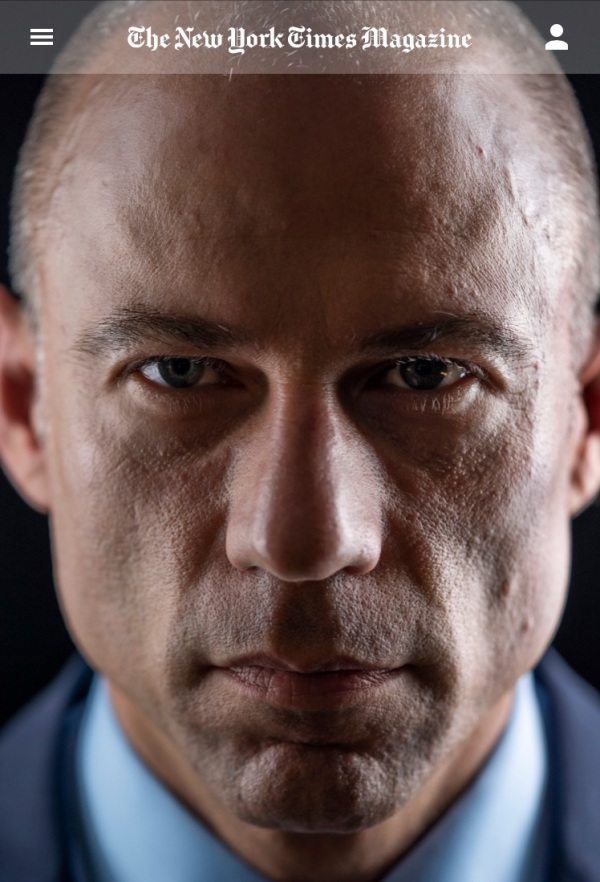NEW YORK TIMES: Neither Avenatti’s mother nor father graduated from college, and they expected their only son to support himself from an early age. (Avenatti has two half-siblings, from his mother’s first marriage.) In 1989, he worked part time for Representative Dick Gephardt, a Democrat, and enrolled in St. Louis University, before transferring to the University of Pennsylvania as a political-science major. Photos from that time depict a scrawny kid; his hair is dark and full, his glare preternaturally confident. “I used to call him the little man with the brown briefcase,” Avenatti’s first wife, Christine Avenatti-Carlin, told me.
“He was 21 years old when we met,” Avenatti-Carlin says, “but he was already incredibly driven, incredibly serious. I don’t think he ever relaxed.” A year earlier, Anheuser-Busch restructured, and Avenatti’s father was laid off. Michael was still reeling, Avenatti-Carlin says: “It hit him hard. I can remember him talking about how he was going to get through law school, so he could help ‘the disenfranchised.’?”
To avoid going too deep into student-loan debt, Avenatti, who had long thought about going into politics, took a year and a half off from Penn and accepted a full-time job with Rahm Emanuel’s political-consulting firm, the Research Group. At first, Avenatti, “the low man on the totem pole,” as he puts it, was on the advance team for rallies and speeches, but the firm’s leadership soon promoted him to opposition researcher.
“This was before the days of the internet, so if you wanted to find clerk records or look up business disputes, you would have to go to the candidate’s jurisdiction,” Avenatti says. “I did a lot of flying around, a lot of gumshoeing.”In total, he says he participated in 150 campaigns in 42 states, including Pennsylvania and Delaware Senate races and a Philadelphia mayoral contest. It was an exceptionally demanding schedule for someone who had not yet finished his senior year in college, and by 1996, Avenatti was burned out on politics. MORE

